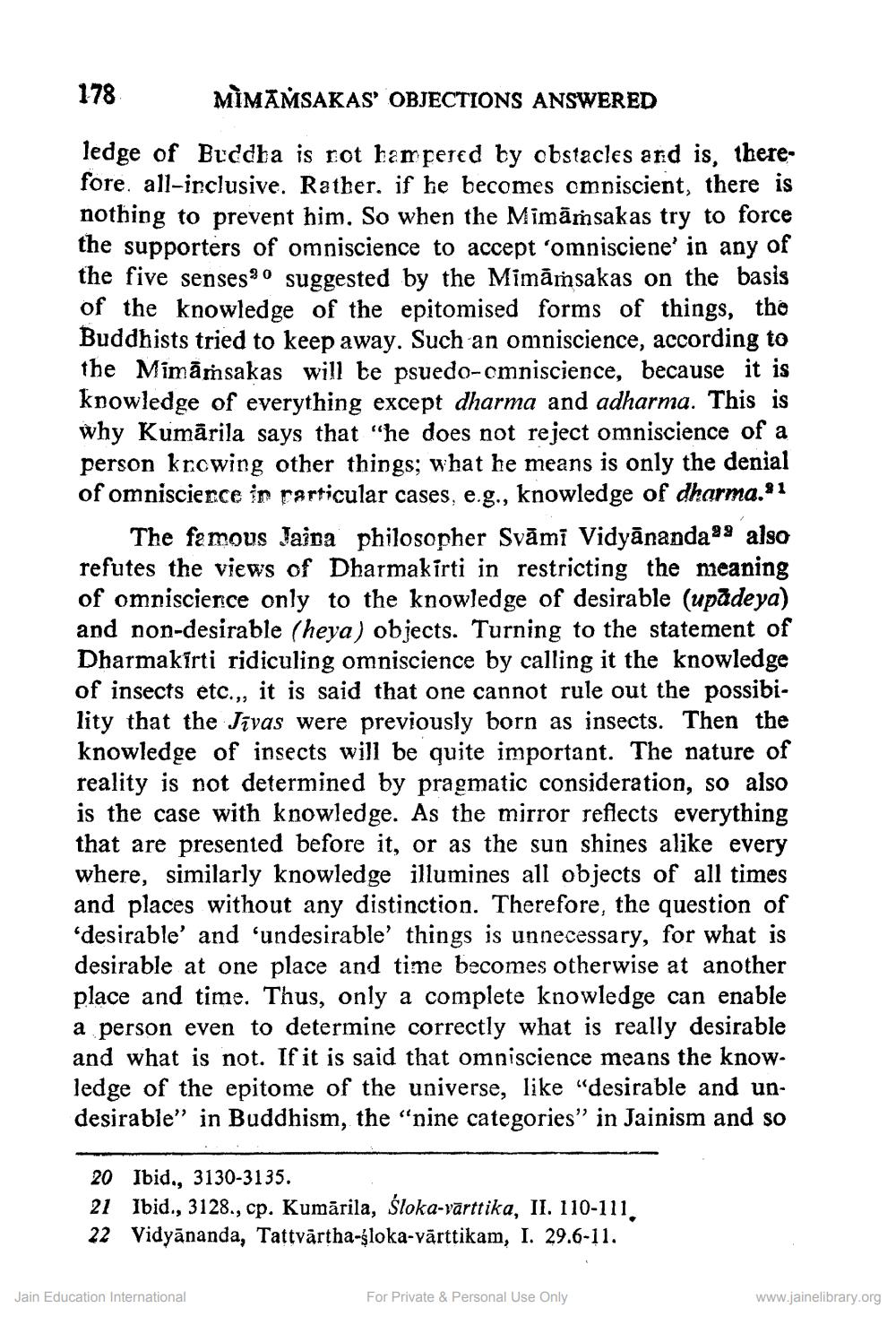________________
178
MIMAMSAKAS' OBJECTIONS ANSWERED
ledge of Buddha is not hampered by obstacles and is, therefore. all-inclusive. Rather. if he becomes cmniscient, there is nothing to prevent him. So when the Mimāmsakas try to force the supporters of omniscience to accept 'omnisciene' in any of the five senses 30 suggested by the Mimāmsakas on the basis of the knowledge of the epitomised forms of things, the Buddhists tried to keep away. Such an omniscience, according to the Mimāmsakas will be psuedo-cmniscience, because it is knowledge of everything except dharma and adharma. This is why Kumārila says that "he does not reject omniscience of a person knowing other things; what he means is only the denial of omniscience in particular cases, e.g., knowledge of dharma."1
The famous Jaina philosopher Svāmī Vidyānandaa9 also refutes the views of Dharmakirti in restricting the meaning of omniscience only to the knowledge of desirable (upadeya) and non-desirable (heya) objects. Turning to the statement of Dharmakirti ridiculing omniscience by calling it the knowledge of insects etc.,, it is said that one cannot rule out the possibility that the Jivas were previously born as insects. Then the knowledge of insects will be quite important. The nature of reality is not determined by pragmatic consideration, so also is the case with knowledge. As the mirror reflects everything that are presented before it, or as the sun shines alike every where, similarly knowledge illumines all objects of all times and places without any distinction. Therefore, the question of 'desirable' and 'undesirable' things is unnecessary, for what is desirable at one place and time becomes otherwise at another place and time. Thus, only a complete knowledge can enable a person even to determine correctly what is really desirable and what is not. If it is said that omniscience means the knowledge of the epitome of the universe, like "desirable and undesirable" in Buddhism, the "nine categories" in Jainism and so
20 Ibid., 3130-3135.
21 Ibid., 3128., cp. Kumārila, loka-vārttika, II. 110-111 22 Vidyananda, Tattvärtha-gloka-vārttikam, I. 29.6-11.
Jain Education International
For Private & Personal Use Only
www.jainelibrary.org




